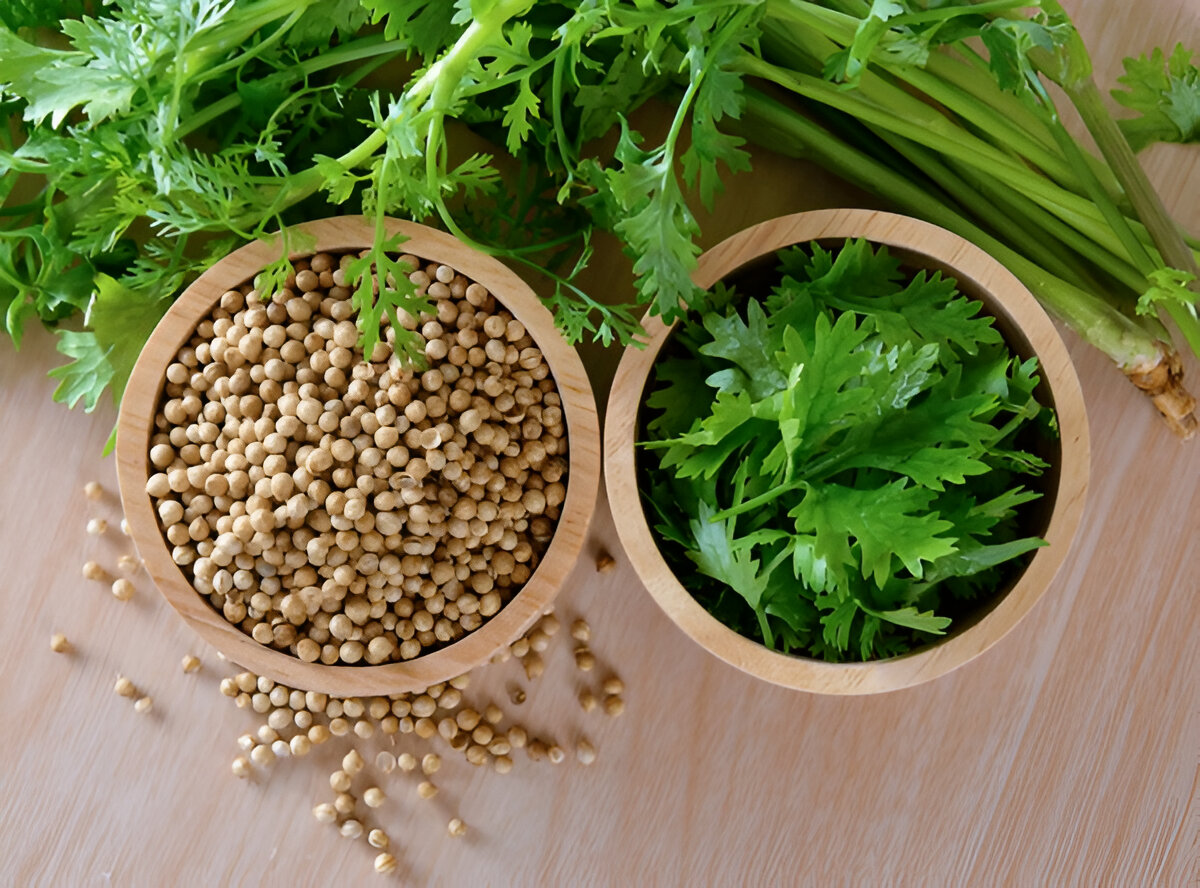Introduction to Koriandri
Coriander, also known as koriandri or cilantro, is not just a dash of color that adds aesthetics to your favorite dishes. It also has a long and proud history and a remarkable range of health benefits that make it a standout in the world of cuisine. Whether you’re charring its fresh leaves for tacos or adding aphrodisiacal seeds to a spicy curry, koriandri is not only delicious, but also pretty damn nutritious. Come along as we rediscover the incredible history of this potent plant-enthralling, of-the-earth cultural and medicinal treasure. If you’ve ever wanted to know how to make the most of Koriandri in your life, look no further!
Historical and Cultural Importance of Koriandri
Koriandri is one of the world’s oldest spices, predating 20000 BC. It is thought to have originated in the Mediterranean and spread to continents by means of trade.
Ancient cultures worshiped it for more than just its flavor, but its healing powers. The Ancient Egyptians mixed koriandri along with other herbs in their tombs and used as incense in their ceremonies and to keep away plague, but they also used it in meat preservation.
Koriandri has a unique and special place in Indian culture. It is an iconic ingredient in local cuisine that is given center stage in countless dishes and feted at many of the city’s festivals. Its unique smell enhances any culinary dish.
Synonymous with renewal and freshness in many cultures. Koriandri is also used widely, among people as a cure to relieve digestive problems and skin problems, and by doing so it shows its double roles of being both a salve as well as medicine throughout history.
Nutritional Benefits of Koriandri
Koriandri Koriandri is commonly called as coriander which is the rich component of vitamins and minerals. It’s a great source of vitamin K, which is an important factor for bone health and proper blood clotting.
The bright herb is also a good source of vitamin C, an antioxidant that can help the immune system and skin health by fighting oxidative damage.
Additionally, koriandri has essential oil used to have anti-inflammatory bundle. These chemicals can be good for the body by assisting with inflammation.
Koriandri is also high in dietary fiber. Fiber is good for the digestive system and gut health, and helps keep you feeling full longer after meals.
Not only adds taste and flavor to your meals, but it also adds nutrition in a delicious way to your meals.
Medicinal Uses of Koriandri
Koriandri, also called coriander, has a number of therapeutic properties that have been appreciated for a long time. Its leaves and seeds are full of antioxidants that fight oxidative stress in the body.
Historically, koriandri has also been employed to promote digestion. It aids digestion by encouraging digestive enzymes, which can help reduce post-meal bloating and discomfort.
Koriandri is good for digestion and is also anti-inflammatory. This is good news for individuals with joint discomfort or inflammation-related issues.
It is also revered for the possibility that it may be antibacterial. It could help fend off unhealthy bacteria and provide general immune support.
Certain research has indicated that koriandri might help to reduce blood sugar, making it possibly a good option for people dealing with diabetes.
Its relaxing scent may help decrease anxiety and induce relaxation when enjoyed in herbal teas or essential oils.
How to add Koriandri to your Diet
Adding koriandri to your dishes is easy and delicious. Begin by throwing some leaves into salads for extra flavor. Their sharp, citrusy fragrance takes any dish to the next level.
They can be easily added to smoothies, juices, or soups for an additional nutritional boost. It goes great with the likes of pineapple and mango to make cooling smoothies and drinks.
For cooking enthusiasts, sliced koriandri can be thrown into soups or stews just before they are served. This brings up the smell and also reinforces the flavour.
If you’re going to grill vegetables or quick cuts of meat, whip up a marinade that contains ground koriandri seeds. The fragrant spice adds warm, mellow flavors as it cooks.
Don’t shy away from experimenting! Koriandri does wonderfully in salsas and chutneys also – it’s different, fresh taste sets the taste buds tingling!
Other Uses for Koriandri
Koriandri, or coriander, or as cilantro, is more than just a kitchen herb. Its young leaves and seeds can be used to prepare home remedies for a variety of health conditions.
Koriandri is highly esteemed in the beauty world for its skin benefits. The plant is also antibacterial, which fights acne and reduces inflammation. You may find it in facial masks or skincare products that promise a skin refresh.
It can also be used in aromatherapy as the fragrance of koriandri is very captivating. Its fragrance induces calming and stress-relieving effects when used in aromatherapy.
In addition to health and beauty, koriandri also offers traditional practices like pest control. Its pungent smell not only wards off some pests from the garden but also makes for a tasty seasoning in prepared meals as well.
Even now, this extraordinary herb serves as a muse across all aspects of existence.
Possible Side Effects and Precautions
Although this herb has been revered for its curative properties, koriandri should be taken carefully. A few people may develop allergic reactions, such as rash/itching. If you have a history of allergies to any of the plants in the Apiaceae group (carrots, celery, and others), you should probably stay away from koriandri.
Dabbling too much in koriandri may also give rise to digestive problems such as gas or bloating. As with anything, moderation is the name of the game when introducing this herb onto your plate.
Pregnant and nursing mothers ought to seek health care practitioner’s advice before consuming large quantities of koriandri based supplements.
People who are taking blood-thinning drugs should also take caution as koriandri may interact with such medications. And always listen to your body if you have any doubts about adding new herbs to your diet, consult a healthcare provider.
Conclusion
Koriandri is more than a mere taste-booster—it’s an incredible herb, rich with history and cultural value. The path from ancient civilizations to your kitchen is long and varied. They’re incredibly nutritious too, loaded with vitamins and minerals that are good for overall health.
Its curative powers come to the fore as well, providing relief from all manner of diseases. It’s easy to add koriandri to your diet, whether it be fresh leaves on salads or ground seeds in spice mixes. More than just for cooking, this herb is now used in natural remedies and also beauty products.
Nonetheless, potential side effects and precautions should be considered when using koriandri. Knowing how to take it safely can optimize your relationship with this potent plant.
Adopting koriandri into your life can bring more than a little flavor but also some good for your health. So whether you like cooking or are into natural remedies, discovering this powerful plant may set you out on an adventure for good health.















